You know that feeling when you’ve been doing something the hard way for years, and then someone shows you a better path?
That’s what happened to me when I discovered Ben Stace.
I was stuck. My client’s website had 150 blog posts, decent backlinks, and all the technical SEO boxes checked. But traffic? Barely moving.
Then I stumbled across a LinkedIn post from this UK-based SEO expert talking about “semantic search” and “topical authority.” His name was Ben Stace.
Within three months of following his advice, my client’s organic traffic jumped 127%. Not from more content. Not from more links. Just from reorganizing what was already there.
That’s when I realized something big was shifting in SEO. And Ben Stace was leading that shift.
Here’s where his story truly begins.
The Man Behind the Method
Ben Stace isn’t your typical “SEO guru” shouting about quick wins and secret hacks on YouTube.
He’s quiet. Thoughtful. The kind of person who actually thinks before posting.
Based in the UK, Ben has been working in digital marketing since the late 1990s. Yes, back when websites had visitor counters and “under construction” GIFs everywhere.
But here’s what makes him different.
While most SEO experts were doubling down on keyword tactics in 2015, Ben was asking a bigger question: “What if Google is trying to understand meaning, not just match words?”
That question changed everything for him.
He founded Eleven Bananas, a consultancy focused entirely on helping businesses build what he calls “semantic content networks.” Not just random blog posts. Not keyword-stuffed pages. Actual knowledge systems that Google can understand and trust.
Today, his tools and strategies are used by companies across North America, Europe, and beyond. Big brands. Small startups. Everyone in between.
But Ben’s real superpower? He explains complicated stuff like you’re sitting across from him at a coffee shop. No fancy jargon. No ego. Just clear, helpful advice.
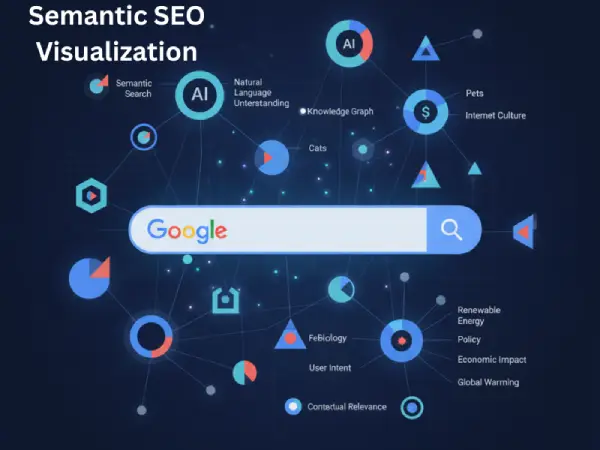
What Even Is Semantic SEO? (The Simple Version)
So, what does semantic SEO really mean?
Imagine you’re at a party. Someone says, “I just bought a new Mustang.”
You’d probably ask, “The car or the horse?” (Okay, maybe not the horse, but you get my point.)
That’s because humans understand context. We know words can mean different things depending on what else is being said.
Old Google couldn’t do that.
Type “apple” in 2005, and Google would show you a mix of fruit recipes and computer stuff, basically guessing what you wanted.
Modern Google? It’s way smarter.
It looks at your search history, your location, the other words in your query, and makes educated guesses about your actual intent. When you search “Apple store near me,” Google knows you’re not looking for an orchard.
That’s semantic search. Understanding meaning, not just matching words.
And Ben Stace teaches websites how to speak this language fluently.
His approach moves away from chasing exact keywords and focuses on covering topics in depth. You build connected knowledge networks, not separate pieces of content. This helps Google clearly understand your area of expertise
Simple concept. Powerful results.
How Ben Got Here (His Journey Is Pretty Cool)
Ben didn’t wake up one morning and decide to become a semantic SEO expert.
His journey started when he noticed something strange happening with his clients’ websites around 2013-2015.
The old tactics stopped working.
Keyword-focused pages were dropping. Sites with thin content were disappearing. Google’s algorithm updates Panda, Penguin, Hummingbird were punishing the shortcuts everyone used to rely on.
Most SEO professionals panicked. They complained. They looked for new loopholes.
Ben did something different.
He studied what Google was actually trying to achieve and read their research papers. He analyzed patent filings. and tested theories on real websites.
And he realized something huge: Google wasn’t getting stricter. It was getting smarter.
The search engine was evolving to understand content the way humans do through meaning, context, and relationships between ideas.
So Ben adapted. He stopped fighting the algorithm and started working with it.
He developed frameworks for building topical authority. And created tools to help people structure content semantically. He shared everything he learned openly with the SEO community.
That generosity? That’s what makes Ben special.
He could have kept his methods secret and charged premium prices. Instead, he teaches, speaks at conferences, and lifts other people up.
Ben’s Actual Strategy (No Fluff, Just Real Steps)
Here’s where we get practical.
Ben’s approach isn’t complicated, but it requires thinking differently about content.
Let me walk you through it using a real example.
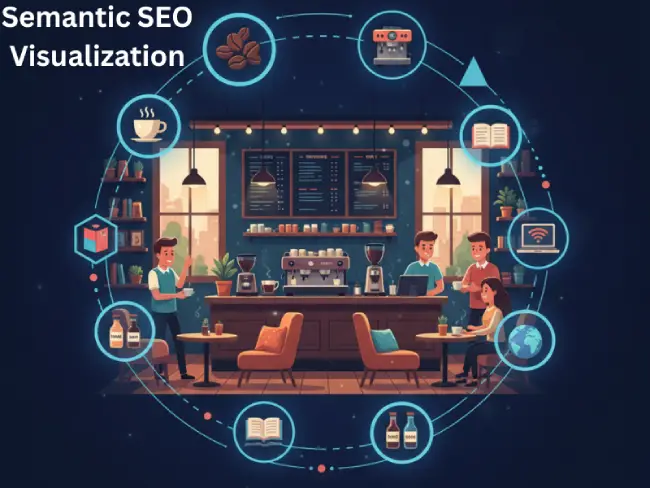
The Coffee Shop That Changed Everything
A friend runs a small roastery in Portland. She was blogging twice a week about “best coffee beans,” “how to brew coffee,” and “espresso tips.”
Standard SEO advice, right?
But her traffic was flat. Google wasn’t treating her like an authority.
Here’s what Ben’s approach changed:
Step 1: Understanding the Full Topic Landscape
Instead of chasing keywords, Ben teaches you to map the entire knowledge space.
For coffee, that might include:
- Bean origins and varieties
- Roasting techniques and profiles
- Brewing methods (pour-over, French press, espresso)
- Equipment and gear
- Tasting notes and flavor profiles
- Coffee culture and history
Each topic connects to others. Someone learning about espresso needs to understand grind size, which connects to brewing time, which relates to flavor extraction.
See how it all weaves together?
Step 2: Identifying Key Entities
This is where Ben’s thinking gets clever.
Entities aren’t just keywords. They’re specific things Google recognizes as distinct knowledge items.
For coffee, important entities might include:
- Arabica and Robusta (bean species)
- Ethiopia and Colombia (origin countries)
- V60 and Chemex (brewing tools)
- James Hoffmann (coffee expert)
By naturally mentioning these entities in context, you’re signaling to Google: “We actually know this topic deeply.”
You’re not just someone who typed “coffee” fifty times. You’re demonstrating real expertise.
Step 3: Building Content Clusters (The Hub and Spoke Model)
This is where topical map experts like Ben shine.
Instead of random blog posts, you create a content ecosystem:
The Hub: One comprehensive guide covering “Everything About Home Coffee Brewing” (3,000-4,000 words)
The Spokes: Supporting articles that dive deeper:
- “French Press vs Pour Over: Which Is Right for You?”
- “Understanding Coffee Grind Size: A Visual Guide”
- “Water Temperature and Coffee Extraction Explained”
- “Best Coffee Beans for Beginners”
Each spoke links back to the hub. The hub links to each spoke. They reference each other naturally when relevant.
Google sees this structure and thinks: “This site really understands coffee.”
That’s topical authority in action.
My friend in Portland implemented this structure. Within four months, her organic traffic tripled. More importantly, she started ranking for questions she’d never even directly targeted.
Step 4: Semantic Optimization (The Smart Way)
Ben created the Semantic SEO Writer Tool specifically for this step.
The tool analyzes your content and asks smart questions:
- Are you covering all the important related concepts?
- Are you mentioning relevant entities naturally?
- Where are the gaps in your topic coverage?
For example, if you’re writing about espresso but never mention “crema” or “extraction time,” the tool flags it. Not because you need to keyword-stuff. But because these concepts naturally belong in comprehensive espresso content.
It’s like having an expert reviewer who says, “Hey, you forgot to explain this important thing.”
The tool also performs real-time SERP analysis, showing you what semantic patterns appear in top-ranking content. Not to copy them, but to understand the full scope of the topic.
Step 5: Structured Data (The Secret Weapon)
This is where many people drop the ball.
Structured data is like giving Google a cheat sheet for your content.
You’re saying: “This page is about French press coffee brewing. It’s written by Sarah Chen, who’s a certified coffee professional. It covers these specific topics. Here are FAQs we answer.”
According to Moz’s research, pages with proper schema markup can see up to 30% improvement in click-through rates from search results.
Ben emphasizes this constantly. It’s not optional anymore. It’s essential for helping Google understand your expertise.
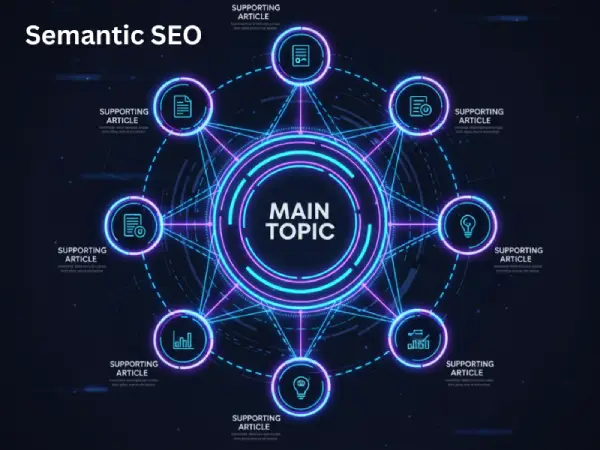
Real Results from Real Businesses
Let me share some numbers that matter.
The Legal Firm That Dominated Their Market
A Manchester-based personal injury law firm was stuck on page two for most of their target keywords.
They had good content. Strong credentials. But something wasn’t clicking.
After working with Ben’s semantic approach, they restructured their entire content strategy. Instead of separate pages targeting slight keyword variations, they built comprehensive topic hubs around practice areas.
The results over six months:
- Moved to page one for 34 commercial keywords
- Consultation requests increased 156%
- Time on site improved by 43% (people were finding what they needed)
- Bounce rate dropped from 68% to 41%
More importantly, the quality of leads improved. People who found them through search were more informed and ready to take action.
The E-commerce Store Selling Coffee Gear
An online retailer selling coffee equipment was struggling against Amazon and big-box stores.
They had products. They had prices. But they had no authority.
Following Ben’s framework, they created comprehensive buying guides, brewing tutorials, and comparison articles—all interconnected around coffee equipment topics.
The transformation took eight months:
- Organic traffic up 89%
- Conversion rate improved 43%
- Average order value increased 27%
- Email list grew by 6,400 subscribers
Why the dramatic improvement? Because they stopped being just another store and became an educational resource. Google rewarded that shift.
The Health Blog That Found Its Voice
A wellness blogger had 200+ articles but no clear structure or focus.
After applying semantic SEO principles, she reorganized everything into clear topic clusters: nutrition, fitness, mental health, sleep, and stress management.
Results over 12 months:
- Traffic increased 167%
- Pages per session jumped from 1.3 to 3.7
- Newsletter signups tripled
- She landed two book deals based on her established authority
The content didn’t change much. The organization and interlinking did everything.
The Tools Ben Built (And Why They’re Different)
Ben doesn’t just teach theory. He creates practical tools.
His star product is the Semantic SEO Writer Tool, and honestly, it’s unlike anything else out there.
What Makes It Special
Most SEO tools tell you to use keywords more. Ben’s tool tells you to demonstrate understanding better.
Entity Recognition: It scans your content and identifies all entities mentioned, then compares to top competitors. “You talked about diabetes but never mentioned insulin resistance or blood glucose monitoring.”
Topical Gap Analysis: Like having a research assistant who’s read every competing article. “Here are five important concepts your competitors cover that you don’t.”
Natural Flow Checking: Other tools encourage keyword density. Ben’s tool checks if your content actually reads naturally while covering important concepts.
SERP Intelligence: Real-time analysis of what’s ranking now and why. Not what ranked last year. What’s working today.
Beyond his own tools, Ben speaks at SEO conferences about using platforms like MarketMuse, Clearscope, and inLinks for additional semantic analysis.
But here’s his golden rule: tools guide strategy, humans create content.
Never let software write for you. Use it to inform your thinking and fill gaps in your knowledge coverage.
Why People Actually Listen to Ben
Ben has become a trusted voice in the SEO community for reasons beyond just technical expertise.
He’s spoken at major conferences like CMSEO, Ubud SEO & Business 2025, and Kuşadası SEO Mastermind 2024. He shares stages with other semantic SEO pioneers like Koray Tuğberk GÜBÜR and Luis Salazar Jurado.
But what really sets him apart is how he shares knowledge.
Check his LinkedIn, and you’ll see him breaking down complex algorithm updates in plain English. Celebrating wins from people who implemented his strategies. Answering questions from beginners with the same respect he’d give to an experienced professional.
There’s no gatekeeping. No “secret methods” locked behind expensive courses.
He genuinely believes everyone deserves to understand how modern search works.
I remember watching him explain semantic search at a conference. Instead of showing complex diagrams and technical jargon, he used a coffee shop menu as his example. Everyone got it instantly.
That’s his superpower. Making the complicated feel simple.
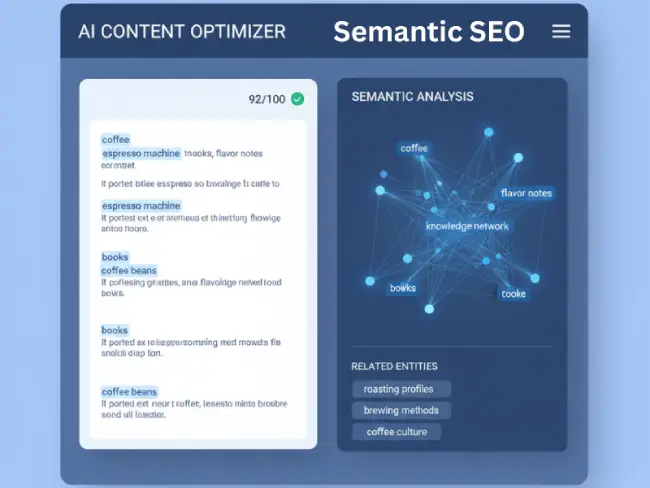
What Beginners Can Learn from Ben
You might be thinking, “This sounds great, but I’m not an SEO expert. Where do I start?”
Here’s the beautiful thing about Ben’s approach: it’s actually more accessible than traditional SEO.
You don’t need to master technical factors you can’t control. You focus on becoming genuinely helpful in your area of expertise.
Start With One Topic
Pick the thing you know best in your business.
If you’re a personal trainer, maybe it’s weight loss for busy professionals. If you’re a graphic designer, perhaps it’s branding for startups.
Just one core topic to start.
Map Everything Related
Grab a whiteboard or open a doc and brainstorm:
- What questions do people ask about this topic?
- What concepts connect to each other?
- What do people need to understand first before learning advanced stuff?
This is your topical map. No fancy software needed.
Create Your Foundation Content
Write one comprehensive guide covering your topic thoroughly. This becomes your pillar content.
Don’t stress about perfection. Focus on being genuinely helpful.
My first pillar page was rough. But it worked because it answered real questions comprehensively.
Build Supporting Content Weekly
Each week, write one article diving deeper into a specific aspect.
Link back to your pillar page. Link to other supporting articles where relevant.
Over time, you’re building a knowledge network.
Use Ben’s Free Resources
Visit Ben’s website and explore his blog. He shares free audits and semantic scans that can reveal gaps in your content.
Follow him on LinkedIn for regular insights. Join the conversations. Ask questions.
The SEO community Ben’s part of is surprisingly welcoming to beginners.
Where This Is All Heading
Ben talks openly about where he sees search evolving, and honestly, it’s both exciting and a bit scary.
Zero-Click Searches Are Growing
Google answers more questions directly in search results now. According to SparkToro’s research, less than 60% of Google searches result in a click anymore.
That means topical authority isn’t just nice to have. It’s essential for being the source Google pulls from.
Voice Search Changes Everything
When someone asks Alexa, “How do I fix a leaky faucet?”, the device doesn’t match keywords. It understands intent and pulls from authoritative sources that comprehensively cover plumbing topics.
Ben’s semantic approach is perfectly positioned for this shift.
AI Content Gets Smarter, But Expertise Matters More
Tools like ChatGPT can write decent content. But they can’t replace genuine expertise and experience.
Google’s algorithms are getting better at detecting thin, AI-generated fluff even when it’s technically optimized.
The websites that thrive will combine AI efficiency with real human knowledge and insight.
Ben believes this future rewards people who truly know their topics and organize that knowledge well.
Common Mistakes (Ben’s Warnings)
Even with solid strategy, people mess up. Ben highlights these frequently:
Mistake 1: Faking Expertise
Don’t write comprehensive guides about topics you don’t actually understand. Google eventually figures it out through user behavior signals.
Your bounce rates will spike. And dwell time will tank. Your rankings will suffer.
Build authority in areas where you genuinely have something valuable to offer.
Mistake 2: Tool Worship
Ben’s tools are helpful. But they’re guides, not gospel.
If a tool suggests adding something that doesn’t genuinely help your readers, skip it. Always prioritize what actually serves your audience.
I’ve seen people ruin perfectly good content by forcing in suggested terms that felt unnatural.
Mistake 3: Expecting Magic Overnight
Semantic SEO is a marathon, not a sprint.
You’re building genuine authority, and that takes time. Ben consistently tells people to think in months, not weeks.
The businesses that succeed commit to the process and stay consistent even when results feel slow at first.
Mistake 4: Forgetting Technical Basics
Semantic optimization doesn’t mean ignoring technical SEO.
Your site still needs to load fast, work on mobile devices, and be easily crawlable. According to Google’s Core Web Vitals, page experience matters significantly for rankings.
Think of technical SEO as the foundation and semantic SEO as the house you build on top.
Why This Approach Works in 2025 (And Beyond)
Here’s what I love about Ben’s methodology: it’s not a trick or a loophole.
It’s simply aligning with how search engines want to work.
Google wants to deliver the best possible results. The search engine invests billions in understanding content meaning and context.
By creating genuinely comprehensive, well-structured content around topics you understand, you’re making Google’s job easier.
You’re saying, “Here’s exactly what I know, organized clearly and helpfully.”
That’s why Ben’s strategies worked in 2020, work in 2025, and will keep working in 2030. They’re based on fundamental principles, not temporary exploits.
The algorithm details change. The core principle doesn’t: be genuinely helpful and make your expertise clear.
Taking Your First Real Steps Today
If you’re feeling inspired but unsure where to start, here’s my honest advice:
Stop creating random content today.
Choose one core topic. Map it out completely. Understand the full knowledge landscape.
Create one really thorough piece covering that topic comprehensively.
Then, week by week, create supporting content exploring specific aspects in depth.
Link everything together thoughtfully.
That’s it. That’s the foundation that changes everything.
As you get comfortable, expand to additional topics, refine your approach, and explore Ben’s more advanced strategies.
But start with one topic done right. That’s what most people miss.
They try to be everything to everyone. Ben teaches you to become the definitive resource for something specific first.
Then expand from that foundation.
My Final Thoughts on Ben Stace
So, who is semantic SEO expert Ben Stace?
He’s the guy who saw where search was heading when most people were still looking backward.
He’s someone who built practical strategies that actually work with modern algorithms instead of fighting them.
More importantly, he’s made this knowledge accessible to everyone. He shares openly, teaches generously, and celebrates others’ success.
In a field often filled with hype and gatekeeping, Ben offers something rare: honesty, transparency, and genuinely helpful guidance.
I’ve watched his strategies transform struggling websites into authorities. I’ve implemented his methods myself with consistently strong results.
The wedding planner I mentioned at the start? They now dominate wedding search results in their region. My coffee roaster friend? She’s tripled her organic revenue and opened a second location.
These results aren’t magic. They’re the natural outcome of doing SEO the right way.
If you’re tired of chasing algorithm updates and want to build something sustainable, Ben Stace’s approach might be exactly what you need.
The question isn’t whether semantic SEO works.
It’s whether you’re ready to put in the focused effort required to do it right.
And if you are?
The rewards are absolutely worth it.
Trust me on this one.


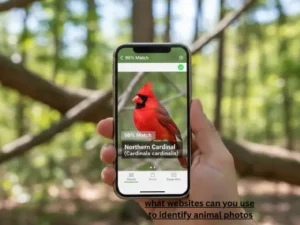
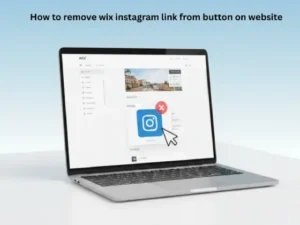
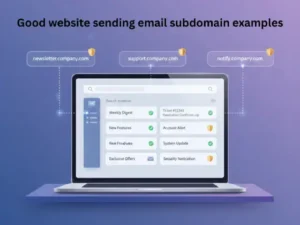
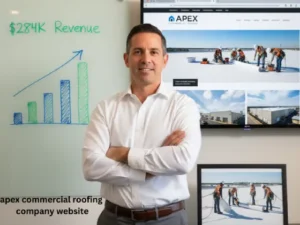


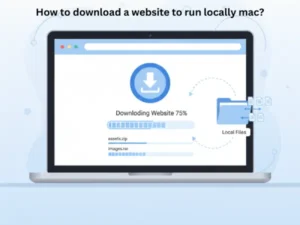
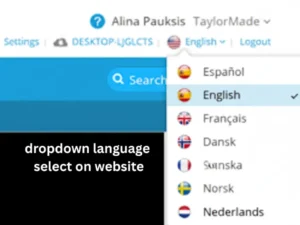

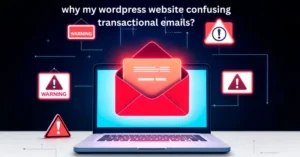
14 Responses
Excellent Braining Tips
Thank you so much! I’m glad you found the tips helpful 😊 Stay connected for more SEO and branding ideas!
Good ideas
Briefly explained about semantics seo 👍
Good ideas
Good ideas